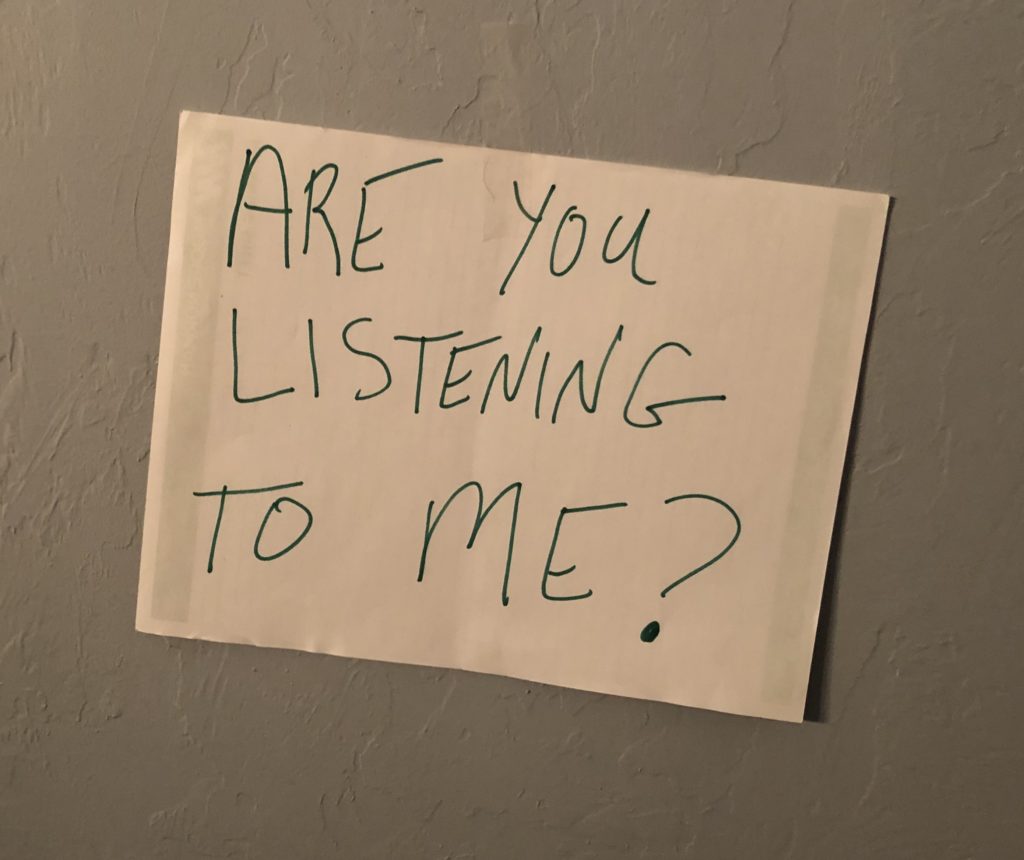
I think most of us categorize lying right at the top of the worst offenses our kids can do. I mean getting out of their chores or whining or fighting with their sibling or not sharing, are all things we see as NORMAL right? But lying?? Ahhhh! Our morality meter pegs immediately. There is just something about lying that sets us off and increases our parenting fear! “What’s going on with my child that she would LIE?” We go 0 to 60 in our irrational thoughts from them being a lying little 6 year old scamp to a homeless con artist at 20. But honestly as rotten an offense as it is, and clearly needs addressing, we must be careful not to go haywire over making it any worse a “sin” or offense as other things like selfishness, not sharing, refusing to do homework or wash the dishes. Lying is not that uncommon in kids, and it’s not unusual for one sibling to struggle with it and another one not to. We also tend to think “Well if a particular behavior is normal for children, then all my kids will _______” But that’s not true either. Just as some kids are more emotional and some more serious, some playful and some not, some keen on math and others keen on reading, so there are some who tend to have a propensity for one offense over another more than their sibling. This also does NOT make lying more evil and twisted than another form of disobedience. So I would just say be careful parents about assigning it more evil points than for example, not doing their chores or fighting with siblings. Because if you do assign an inordinate number of evil points to lying, that might be your filter for how you deal with it, and perhaps that will be out of balance with how you handle other behavioral misconduct. To some degree, that sends a message to our kids it’s okay to act out and disobey us in certain areas of instruction, but never in this one particular area-lying! And also assigning it to the darkest of the dark side, will put us into a frenzy of worry that is perhaps unnecessary and that too will rob us of our joy and peace. So while there is no magic bullet for this, any more than there is for getting them to eat their veggies, there are some fundamental steps we can take to address lying as well as a few fun suggestions:
1. Be consistent and follow through with consequences. Remember we don’t give our kids consequence because it works. Every. Time. Right. Away. We are in this parenting thing for the long haul. And sometimes it’s a long haul. But our God is faithful. And where necessary, they should always pay restitution for their act of deceit when possible.
2. Model integrity. So important parents! Don’t let the kids see you lie to someone, i.e. saying you can’t go to their home jewelry party because you have a commitment, when the kids know you don’t have that commitment. Be honest with people yourself. It’s the little things that get us into trouble with our young’uns. Model integrity. They are watching.
3 Find The Veggie Tale movies: (Excellent for littles) Larry-Boy And The Fib From Outer Space! It’s all about telling the truth. And also, “The Little House that Stood” which is all about making good choices.
4. Be on the lookout for real life examples of someone (maybe a child that your child knows) who was not truthful and that choice resulted in pain. (age appropriate stuff) Maybe this could be an example of a child at school who was dishonest with a teacher and it didn’t turn out good for the child. Just be on the lookout for those stories brimming with life lessons.
5. And finally, use scripture. It’s timeless. It’s our ace in the hole. It’s truly raising the bar for them. It’s not just your parents saying “blah blah blah.” It’s God’s desire for us to be truthful. Score! Do you read the bible out loud with your children already? If you do, find scriptures (in an easy to understand version for your little one, tween or teen) that remind us of the character of Jesus. For instance, James 1:17 Every good and perfect gift is from above, coming down from the Father of the heavenly lights, who does not change like shifting shadows. Questions you can ask: “What are some of the perfect gifts that God give us? What are shifting shadows?” Maybe they will look at you like you’ve lost your mind. Or maybe they will just say “I don’t know.” Then you can say something like “Shifting shadows are people and things that lie about the truth. God is not like that.”
Or Galatians 5:22-23: “But the fruit of the Spirit is love, joy, peace, forbearance, kindness, goodness, faithfulness, gentleness and self-control. Against such things there is no law.” This luminous gem is about the fruits of the spirit. And one of those fruits is faithfulness which underscores integrity and honesty.
When you feel your child is ready for John 8:44, it is the mother of all verses on lying because it clearly tells us that “you know who” is the father of lies. The enemy, the devil. Indeed, lying is his native language. This can be heavy for the littlest of kids. So start out with easy to understand verses on the importance (and commands) of being honest, and work your way up.
Maybe these are all things you’ve already thought of. Sometimes we just need affirmation that what we are doing is okay especially when the problem continues. Keep fighting the good fight. And know that consistence is key!
